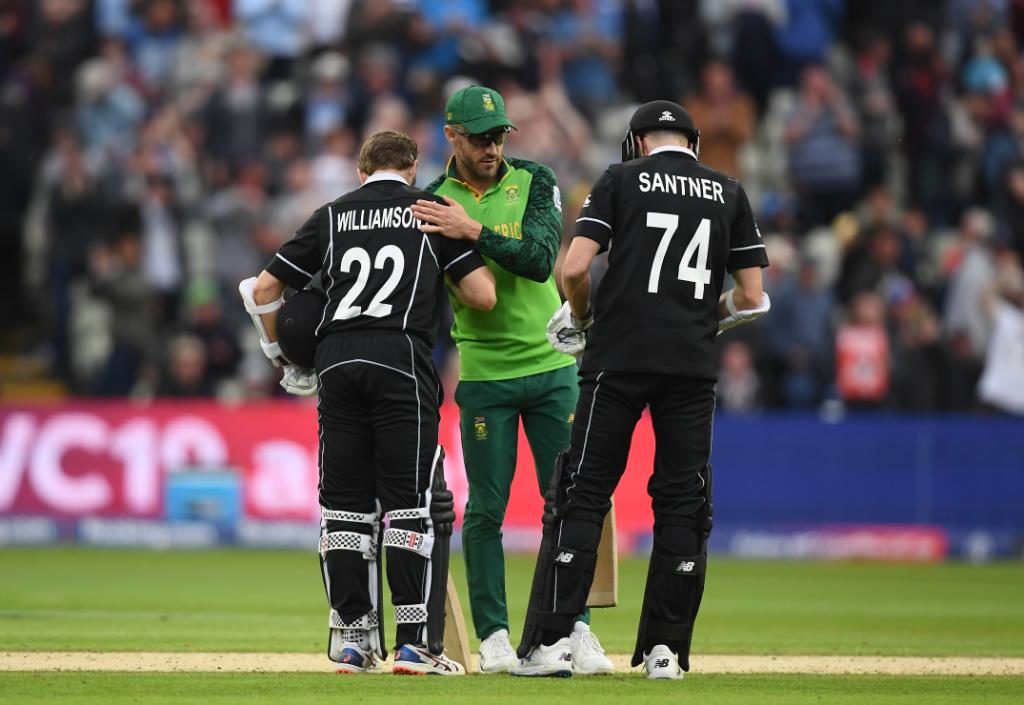The Proteas’ obsession with the monotony and uniformity of bilateral series cricket is the big reason why they always seem to fall apart at the World Cup.
Kane Williamson is probably the most understated New Zealand cricket captain of the last few of decades.
I’m not talking about Williamson the batsman, who I regard as one of the top five willow-wielding beasts in the game. He is an absolute superstar with his Gray-Nicolls in his hand, and Wednesday’s knock in the match against the Proteas just reaffirmed his greatness and his standing in the modern game.
Williamson the person, though, doesn’t look like he could harm a fly.
These days he sports a lavish beard, which makes him look a bit older than 13, while it seems like he still hasn’t embraced the dumbbells in the gym.
He doesn’t have the brash coolness of his predecessor Brendan McCullum or the cult-hero status (yet) that Dan Vettori enjoyed in the Land of the Long White Cloud. He also doesn’t have that larger-than-life persona of Stephen Fleming, who came across as very statesman-like.
But that’s where the differences end, their various personalities.
As far as cricketing nous is concerned, they are all on the same very high level. It’s something South Africans have witnessed all too often in past World Cup battles between the two countries.
The Black Caps have been a thorn in the Proteas’ side at the Cricket World Cup, as they have knocked the South Africans out of the tournament in the last two editions in 2011 and 2015.
New Zealand also beat the Proteas in a key fixture in the 2003 showpiece event in South Africa, which contributed to the host nation’s elimination from the tournament before the knockout stage. On Wednesday, they essentially all but sealed South Africa’s tournament fate with a four-wicket win at Edgbaston.
One could argue that each of the above-mentioned Kiwi captains went into battle with the South Africans with inferior teams compared to the side in green and gold (or avo and camouflage as far as the 2019 World Cup kit is concerned …).
But the New Zealanders always seem to come out on top.
This is in stark contrast to the teams’ head-to-head record in their last seven bilateral series meetings since New Zealand visited South Africa’s shores in the 2005-06 season.
The Proteas have won six of the last seven ODI series against the Black Caps, with New Zealand’s last triumph – a 2-1 series win – coming in South Africa in the 2012-13 season.
The Kiwis always seem to punch above their weight at the World Cup, because they managed to supplement their shortcomings by thinking outside the box and embracing the unique challenges of a World Cup.
They also correctly identify the key moments in matches, which could have an impact on the result. They know a small thing like a change in the field or a shift in gears with the bat can have a huge impact on a match.
In 2011, the Proteas were cruising in their quarter-final against the Blacks Caps who decided to bowl short on a slow pitch and force Jacques Kallis to hit to one of the biggest boundaries at that World Cup. The great all-rounder took it on, and his wicket led to a collapse of epic proportions.
Four years later, McCullum knew his team had to make a good start to overtake the Proteas’ big score at Eden Park. The captain decided to go after every ball and at one stage they were cruising at 10 runs to the over. So, even if they had a bit of a lull in the middle overs (which they did …), they weren’t going to be too far behind the asking rate in the death overs.
On Wednesday, Williamson produced a masterful knock on a difficult pitch. He basically knew if he was there at the end his team would win. He also knew he didn’t have to play risky cricket (if I had a R1 for every time he ran the ball down to third man …) after Colin de Grandhomme came in and took on the bowling at a vital stage.
A former Test player recently told me that South Africa do well in bilateral series because of its repetitiousness. Same opposition. Same grounds. Same hotels. Same everything. Their preparations for a World Cup are also largely the same as when they face the same team for a month or two.
So, the players are literally out of their comfort zone once they get to a World Cup, which would explain why they tend to freeze up and miss the big moments in must-win World Cup matches.
This Proteas team have been especially poor at this World Cup in terms of being proactive in answering the questions that the opposition have thrown at them. It’s almost like they waiting for something to happen, instead of making it happen.
In the end, they tend to play themselves into a deep hole, which then requires individual brilliance or a miracle to get out of. It’s a hole they rarely get out of, though.
It obviously didn’t help that more half of the team went into this tournament woefully out of form, while the other half wasn’t fit to play to begin with.
The Proteas need a mindset change when it comes to the World Cup if they are to get this ever-growing monkey off their back.
It sounds obvious, doesn’t it? But history has shown us that they haven’t learned from past mistakes.
The understated Williamson handed them another lesson on Wednesday.







